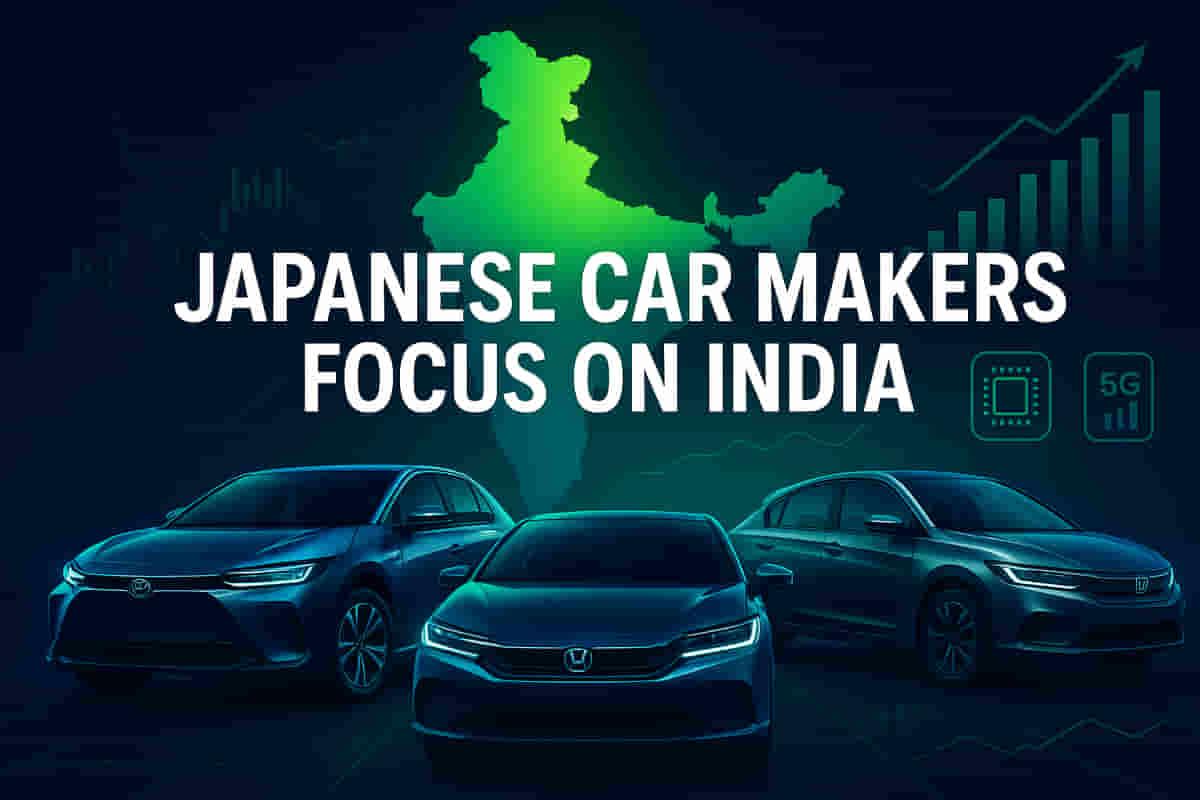Japanese Carmakers Eye India Amid Global Challenges and Chinese Competition
Auto
|
Updated on 31 Oct 2025, 11:22 am
Reviewed By
Aditi Singh | Whalesbook News Team
Short Description :

▶
Stocks Mentioned :
Detailed Coverage :
Japanese car manufacturers, including Toyota, Suzuki, Nissan, and Honda, are presenting aggressive expansion strategies, featuring new electric vehicle (EV) technology and product launches at the Japan Mobility Show. These efforts aim to address challenges posed by expanding Chinese competitors like BYD, supply chain disruptions including shortages of rare-earth magnets and chips, and US tariffs, exacerbated by the ongoing US-China trade war.
Toyota Chairman Akio Toyoda acknowledged Japan's declining global influence compared to Chinese EV makers. Suzuki expressed concern over price competition from Chinese players and is accelerating its EV development. Nissan is implementing a restructuring plan involving job cuts and factory closures due to falling sales, especially in China. Honda also reported significant losses, partly due to US tariffs.
India is highlighted as a crucial growth market for these Japanese companies. While Chinese carmakers struggle to gain traction in India, Japanese brands hold substantial market share. Honda plans to introduce 10 new models in India by 2030, including seven SUVs. Suzuki plans eight new SUVs by 2030-31, and Toyota is expected to launch 15 new cars and upgrades.
Impact: This strategic focus on India means significant investment, new job opportunities in the Indian auto sector, and a wider range of vehicle choices for Indian consumers. It could also spur further competition among domestic and international players in India. Rating: 7/10
Definitions: EV (Electric Vehicle): A vehicle that uses one or more electric motors for propulsion, powered by rechargeable batteries. Rare-earth magnets: Strong permanent magnets made from rare-earth elements, crucial for electric motors in EVs and wind turbines. US Tariffs: Taxes imposed by the United States on imported goods, increasing their cost. Trade War: A situation where countries impose tariffs or trade barriers on each other's goods. Kei car: A Japanese vehicle category of small, lightweight cars with specific engine size and dimension limits. BYD: A Chinese company that manufactures electric vehicles and batteries. GST (Goods and Services Tax): A consumption tax levied on the supply of goods and services in India. SUVs (Sport Utility Vehicles): Cars that combine elements of passenger cars with features from off-road vehicles, often larger and higher clearance.
More from Auto

Auto
Suzuki and Honda aren’t sure India is ready for small EVs. Here’s why.
Latest News

Brokerage Reports
Stocks to buy: Raja Venkatraman's top picks for 4 November

Mutual Funds
Quantum Mutual Fund stages a comeback with a new CEO and revamped strategies; eyes sustainable growth

Tech
Why Pine Labs’ head believes Ebitda is a better measure of the company’s value

Banking/Finance
SEBI is forcing a nifty bank shake-up: Are PNB and BoB the new ‘must-owns’?

Industrial Goods/Services
India’s Warren Buffett just made 2 rare moves: What he’s buying (and selling)

Startups/VC
a16z pauses its famed TxO Fund for underserved founders, lays off staff
Renewables Sector

Renewables
Brookfield lines up $12 bn for green energy in Andhra as it eyes $100 bn India expansion by 2030
Energy Sector

Energy
India's green power pipeline had become clogged. A mega clean-up is on cards.
Renewables Sector

Brookfield lines up $12 bn for green energy in Andhra as it eyes $100 bn India expansion by 2030
Energy Sector
